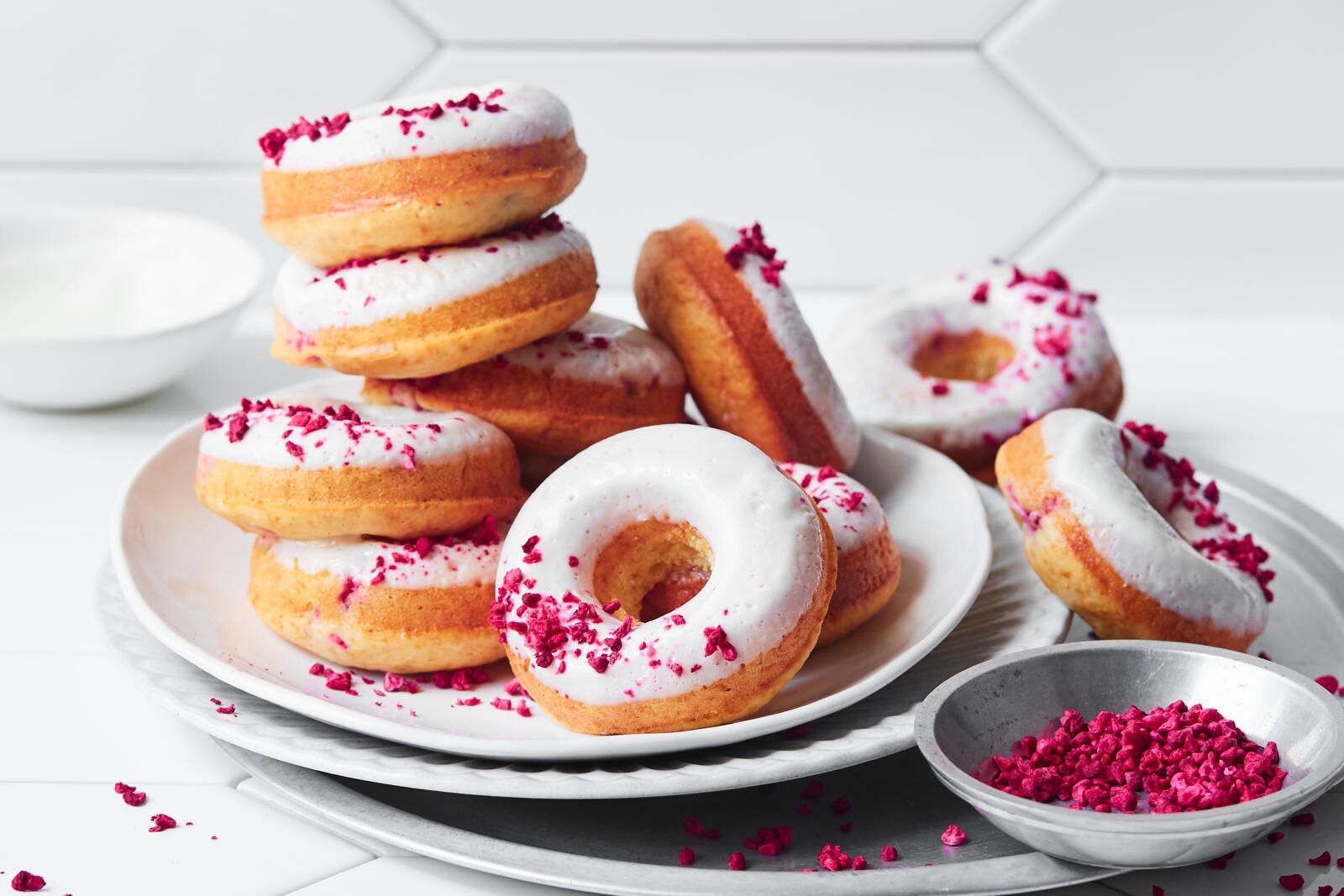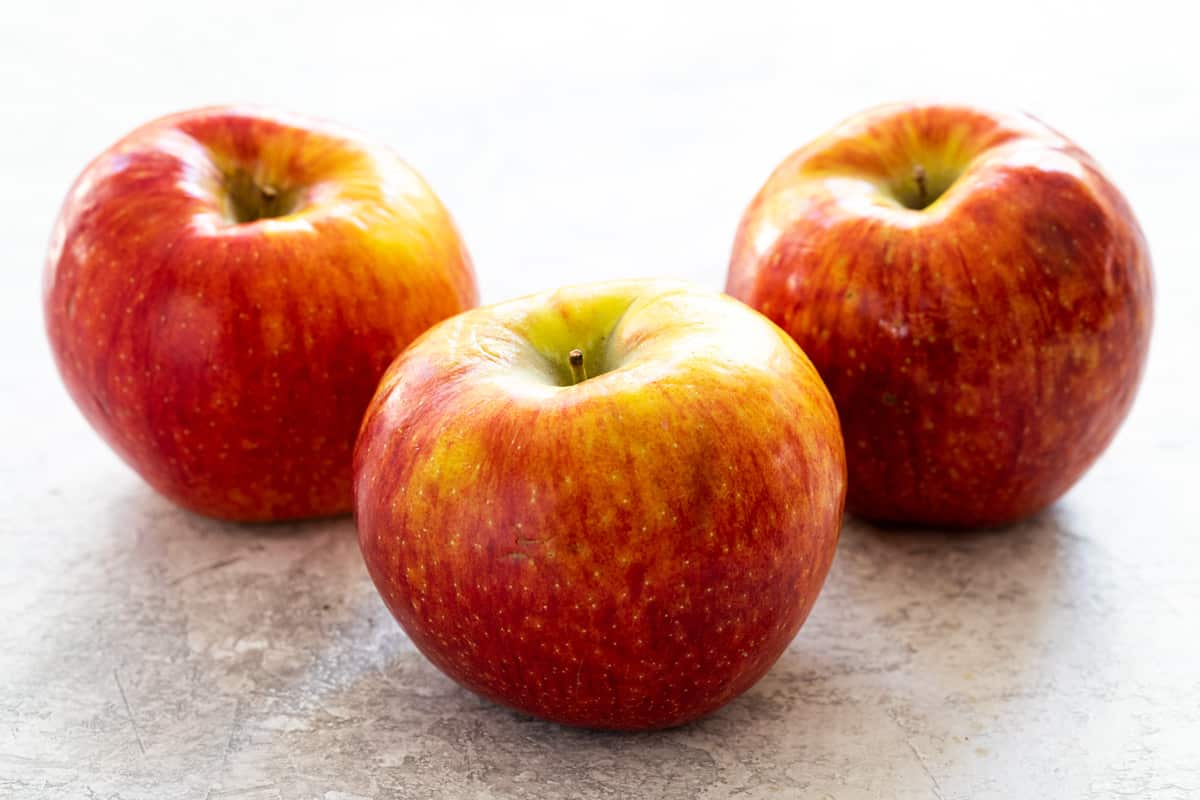High Carb Diet: Which Are Your Best Choices?

MYour diet can have a significant impact on your health. Carbohydrates are important because they provide the energy that fuels your body. It can be problematic, however, as too much means you might experience excess weight gain, or not enough means you don't have enough energy to complete cognitive and physical tasks as efficiently as possible.
The ultimate way to avoid this is by finding out the best choices and then putting them into practice to get the desired results.
This blog will present the top twelve high-carb foods in your meal plan. But let's first begin with these eight carb choices to avoid.

Photo Sources: Online
8 terrible high-carb foods
Carbs can be a bad thing. It is especially true when you consume too much of the wrong things, such as common high-carb foods. While these eight may not have a large role in your meal plan, they can ruin any diet.
01: Soft Pretzel
Soft pretzels are a favorite snack for many people. They're covered in salt, which doesn't help your case. They're high in saturated fats and sodium and contain more than half the recommended daily allowance. The food and beverage industry claims these are healthy, but they're just empty calories that contribute nothing to your diet. Pretzels can cause blood sugar spikes and will not help you lose weight.
02: Processed Cereal
Manufactured cereals often contain added sugar, which is not good for anyone. These foods may also be high in fats, making them a potential heart disease risk factor. In addition to being boring and lacking in protein, processed cereal is just a bunch of carbs. As a result, you'll eat too many calories and miss out on the nutrients you desperately need.
03: Canned Fruit
It should be obvious. Canned fruits are injected with sugar, syrup, and several other chemicals for the fruit to last longer. Therefore, it's bad for your health and your waistline.
04: Doughnuts
Cakes and doughnuts are highly sugary, a major cause of excess weight gain. These foods also contain unhealthy saturated fats and sodium, contributing to heart disease.
05: Soda
Soda is an empty-calorie drink full of sugars and acids that will not help you lose weight. Avoid soda as much as possible because it is just a liquid soft drink with no nutritional value. Also, soda causes water retention, leading to cardiovascular problems like heart disease or stroke.


Photo Sources: Online
06: Potato or Corn Chips
Many fall for the idea that potato chips and corn chips are healthy. Potato and corn chips are high in fat, sodium, and carbohydrates. They also contribute to heart disease and obesity.
07: Gummy candy
Gummy candy often causes blood sugar spikes and cravings for more sweets later. If you're trying to lose weight or maintain your current body mass, stick with legitimate candy like candy corn or caramels instead of eating candy bars.
08: French Fries
French fries aren't just high in calories and fat. They are also high in saturated fat. But that doesn't mean you shouldn't eat them. However, choose the skinny variety and try to limit how much you eat by going with toppings such as salsa instead.


Photo Sources: Online
12 Healthy High-Carb Foods
Now that we've identified the worst of the high-carb foods, let's look at the best. These high-carb foods will give you the energy and nutrients you need, so enjoy them!
01: Quinoa
Quinoa is considered a high-carb food that is low in fat. In addition, quinoa is also an excellent source of fiber and protein. It can be prepared as a grain or a seed and is an excellent substitute for pasta. You can include it in soups, salads, and stir-frys.
Quinoa can also be served as a side dish. It comes in three colors: red, black, and white. White quinoa is considered to be the best for white dishes and salads. Red quinoa is great for soups and sauces. Black quinoa is commonly used in desserts due to its nutty flavor.
One cup of cooked quinoa contains 222 calories, 4 grams of fat, 6 grams of fiber, 76 grams of carbohydrate (17 grams being sugar), and 8 grams of protein.
Because quinoa contains less gluten than wheat or oats, it's a great food for people with sensitive digestive systems or gluten intolerance.
02: Oats
Many people consider oatmeal bland. However, as long as you add flavorings or toppings to it, it can be a delicious way to start your morning. Oatmeal can have many benefits, including helping lower cholesterol and providing natural energy for your brain and body. It's also very nutritious — especially if it's cooked with eggs on top to add additional protein and healthy fats.
You can eat oatmeal plain or add toppings such as fruit, nuts, and flavoring extracts.
One cup of cooked oatmeal contains 167 calories, 2 grams of fat, 3 grams of fiber, 34 grams of carbohydrate (7 being sugar), and 5 grams of protein.
Oatmeal is a whole grain that also provides you with fiber, which is a good way to keep your digestive system healthy and regular. Studies show that people with diabetes and those with heart disease may choose to eat oatmeal for the extra fiber because it helps lower their blood sugar levels long-term.
03: Buckwheat
Buckwheat is a form of grain that is gluten-free, containing more protein and nutrients than many other grains. Unlike other types of wheat, buckwheat is lower in fat and sodium. It can be prepared as cereal or bread to provide energy and nutrients from the start of your day.
Buckwheat is good dietary fiber, folic acid, and magnesium source.
One cup of cooked buckwheat contains 239 calories, 4 grams of fat, 3 grams of fiber, 47 grams of carbohydrate (19 being sugar), and 5 grams of protein.
Buckwheat is a good source of magnesium because it's high in this mineral. It's one of the best sources of magnesium you can find. Research shows that people who eat buckwheat products have a lower risk of osteoporosis and bone fractures. Additionally, it reduces your risk of developing type II diabetes.
04: Bananas
Bananas are one of the most popular fruits in the world. So it's surprising that people still consider them high in carbs. Bananas are a good source of natural sugars your body needs to function properly. Bananas can help increase your energy level during the day and provide you with a sense of natural sweetness and satisfaction often lacking in other foods.
One cup of bananas contains 200 calories, 2 grams of fat, 29 grams of carbohydrate (19 being sugar), and 4 grams of protein.
Bananas also have large amounts of potassium, which is important for healthy muscle function, keeping you energized during the day and avoiding dehydration. Potassium is important for maintaining normal heart rhythm and nerve function, too.
Bananas are also an excellent source of vitamin B6, which your body needs to metabolize essential fatty acids. Bananas are also rich in fiber, thanks to the fiber-packed area surrounding the banana pulp.
05: Sweet potatoes
One large sweet potato contains less than fifty grams of carbs. They're a great source of vitamins A, B6, and C. They're extremely nutritious and have been shown to help release serotonin in the brain, which can help you feel happier and more relaxed. You can take sweet potatoes and turn them into a delicious side dish by topping them with healthy fats such as avocado or Greek yogurt, making them taste delicious.
One cup of cooked sweet potatoes contains 204 calories, 1 gram of fat, 5 grams of fiber, 49 grams of carbohydrate (11 being sugar), and 4 grams of protein.
You should avoid over-cooking your sweet potatoes to make them more crispy or brown. Sweet potatoes are rich in complex carbohydrates such as fiber and resistant starch, which can feed your gut bacteria and keep your digestive system healthy.
Sweet potatoes are a good source of vitamin C, which helps you fight off infections and recover faster after exercising hard.


Photo Sources: Online
06: Beets
Despite the red color, beets are very healthy. They help minimize the risk of heart disease, stroke, and cancer. In addition, they're also high in vitamins A and C and a variety of other nutrients. You can take beets and turn them into a delicious salad by using olive oil or lemon juice to add flavor. You can also cut them up and turn them into a delicious broth or soup with other vegetables.
One cup of beets contains 72 calories, less than one gram of fat, 11 grams of fiber, 14 grams of carbohydrate (6 being sugar), and 1 gram of protein.
Beets are known for their nitrates that minimize blood pressure. Some research shows that drinking beet juice could lower your blood pressure by as much as 10 points.
Beets also contain lutein and zeaxanthin, which help protect your eyes from damaging UV rays.
07: Oranges
Oranges are full of healthy vitamins and minerals, including potassium. In addition to this, oranges are a low-calorie fruit that is low in carbs and fat. Unfortunately, many people avoid oranges because they associate them with weight gain. The ultimate time to consume oranges is in the morning. Try to squeeze half an orange into your daily diet for maximum benefits..
One cup of oranges contains 74 calories, less than one gram of fat, 8 grams of fiber, 14 grams of carbohydrate (7 being sugar), and 1 gram of protein.
Oranges are excellent sources of vitamin C. It may be the best source found in the diet. Vitamin C is essential for a healthy immune system and cell growth and for keeping your muscles strong and healthy.
Oranges are also a good source of vitamin A, which will help you absorb more iron from other foods you consume throughout the day — this is important for preventing anemia caused by low iron levels in the body.
08: Blueberries
Blueberries are an excellent source of vitamins and minerals. They're high in antioxidants, which help the body fight disease, and other substances that boost the immune system. You can eat it raw or cooked into various dishes and add them to other fruits and vegetables.
One cup of blueberries contains 77 calories, less than one gram of fat, 8 grams of fiber, 18 grams of carbohydrate (5 being sugar), and 1 gram of protein.
One cup serving provides you with 4% of your recommended daily intake for vitamin C, a nutrient that plays an important role in immune system function. It also provides 4% of your recommended daily intake for manganese, an essential component in many enzymes that helps maintain bone health.
Two cups of serving provide about 8% for potassium and 5% for magnesium — both are considered macronutrients that are involved in muscle activity and contraction.
09: Grapefruit
Grapefruit is a high-carb fruit full of vitamins, minerals, and beneficial substances. In addition, grapefruit contains significant amounts of vitamin A, which is why it's also known as an "antioxidant" fruit. You can take the whole grapefruit by eating it with a spoon or juice it to make a refreshing beverage.
One cup of grapefruit contains 66 calories, less than one gram of fat, 10 grams of fiber, 13 grams of carbohydrate (9 being sugar), and 1 gram of protein.
One cup serving provides 88% for vitamin C, a nutrient that plays an important role in immune system function. It also provides 11% of your recommended daily intake for potassium — a mineral that helps regulate muscle contractions and is important to maintaining healthy blood pressure levels.
Two cups of serving to provide 20% of vitamin A considered an "antioxidant" because it protects the body against free radicals that could contribute to oxidative damage.
You can juice your grapefruits or eat them whole.


Photo Sources: Online
10: Apples
Apples are a high-carb fruit that's also low in calories. Apples contain a small amount of protein and fiber. Apples are also very filling. They're the "perfect" fruit because they're perfect for eating on their own or combined with other foods such as yogurt or peanut butter.
One cup of apples contains 86 calories, less than one gram of fat, 8 grams of fiber, 13 grams of carbohydrate (9 being sugar), and 2 grams of protein.
Apples are rich in vitamin C, helping the body absorb iron. In addition to this, apples contain significant amounts of vitamin A and pectin, which is known as a "fiber" nutrient. Pectin is important to maintain a healthy digestive system.
Apples are also a good source of potassium — an essential mineral that plays a role in maintaining proper blood pressure levels and helping you feel energized throughout the day.
11.Kidney beans
Kidney beans are popular types of beans and peas. They have not only low carbs but also high protein and fiber. Kidney beans have been shown to reduce blood pressure, help fight heart disease, and reduce cholesterol. You can take them on their own as a side dish or added to foods like chili to give them extra flavor.
12.Chickpeas
Chickpeas are the other bean commonly made into a dip or spread. They have about forty grams of carbs in an entire can, which is low compared to other types of beans. But what stands out is their high fiber content — one cup contains almost fifteen grams of fiber. It helps fight constipation and lowers the risk of heart disease while providing the body with slow-burning energy throughout the day.


Photo Sources: Online
Conclusion
There you have it! These are all the high-carb choices to have regularly. I hope the guide helps you make better food choices for your health.





